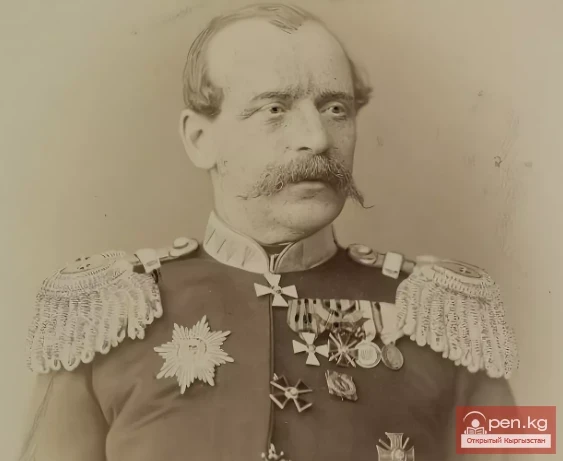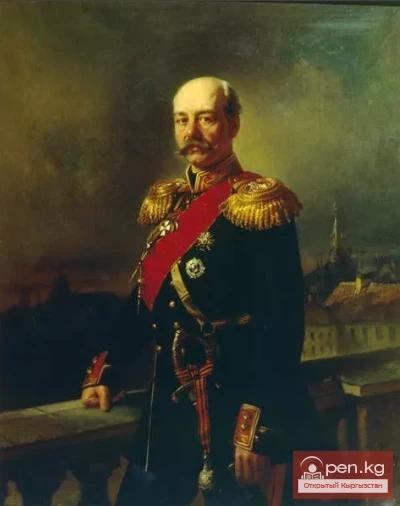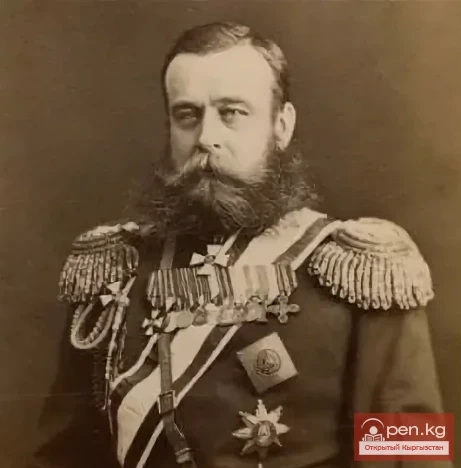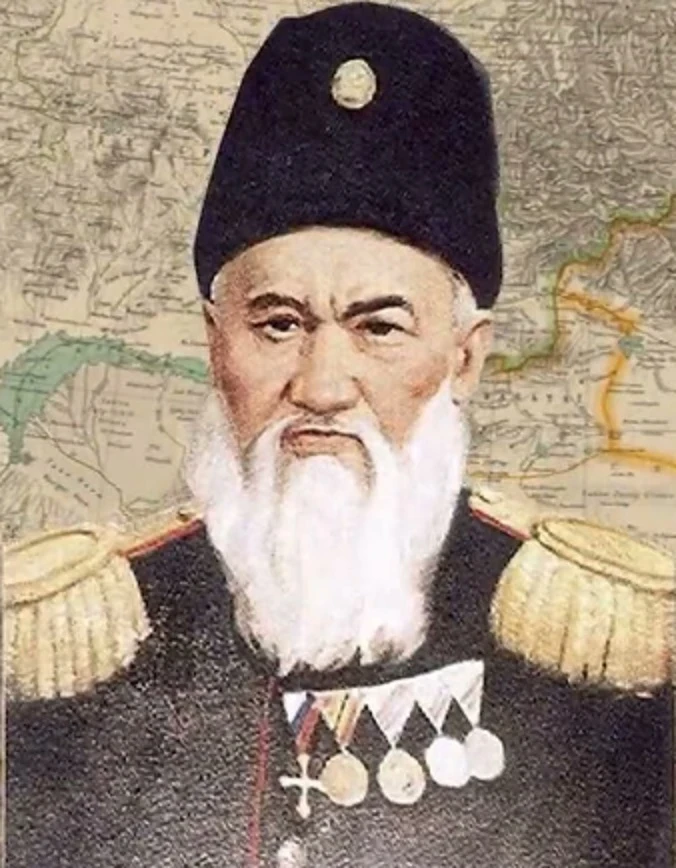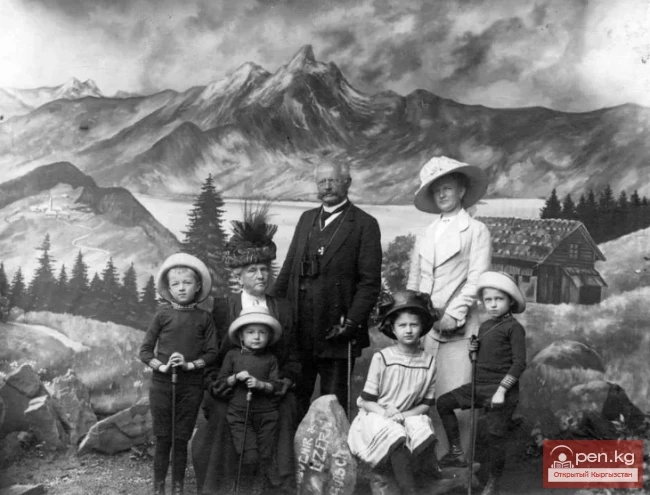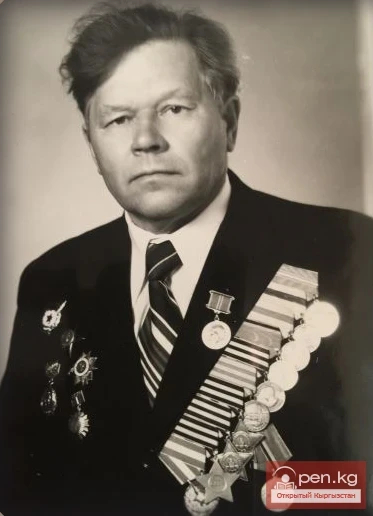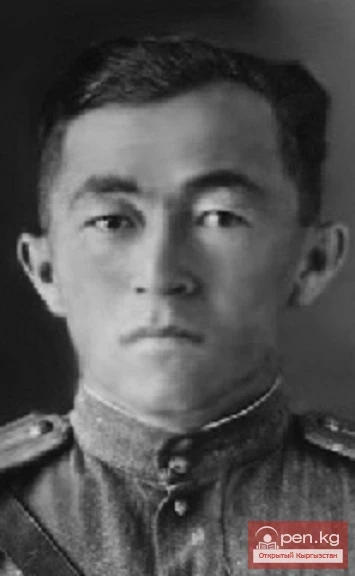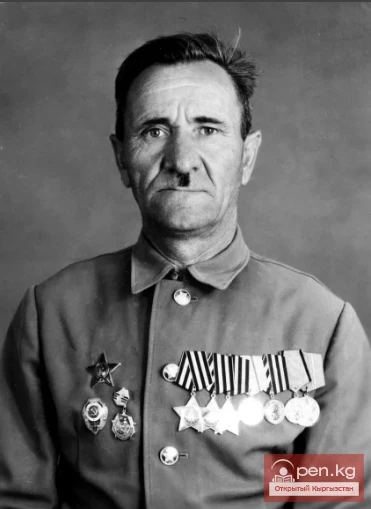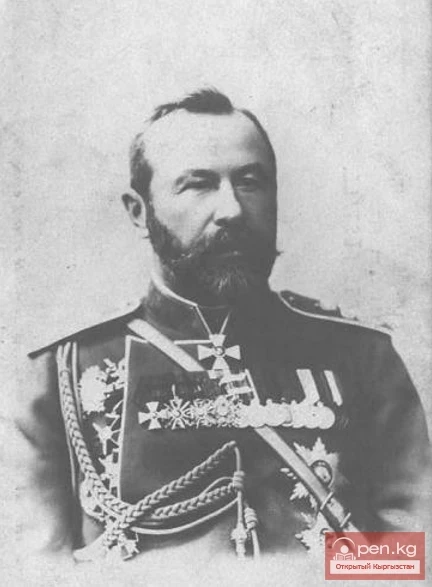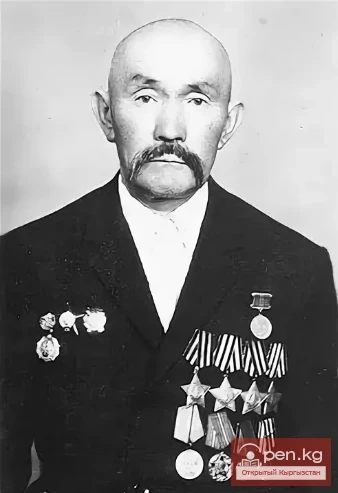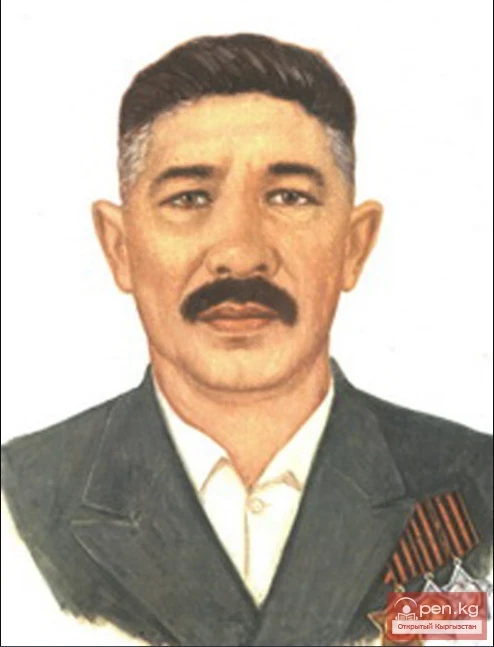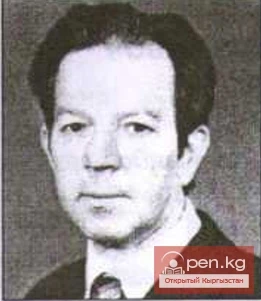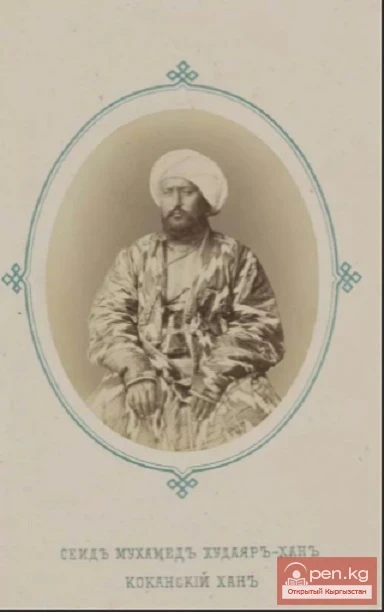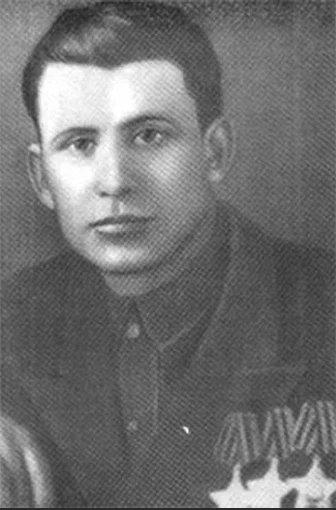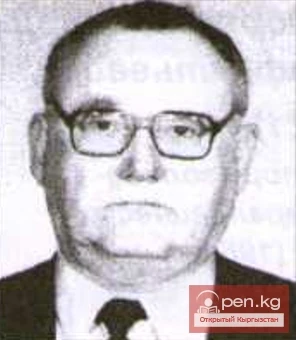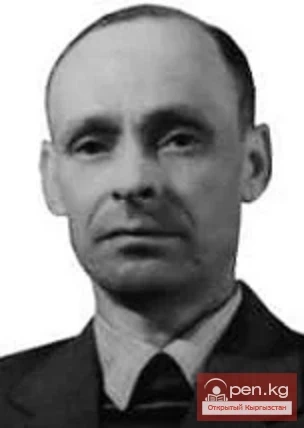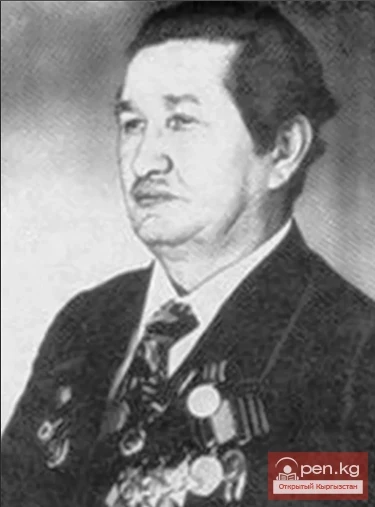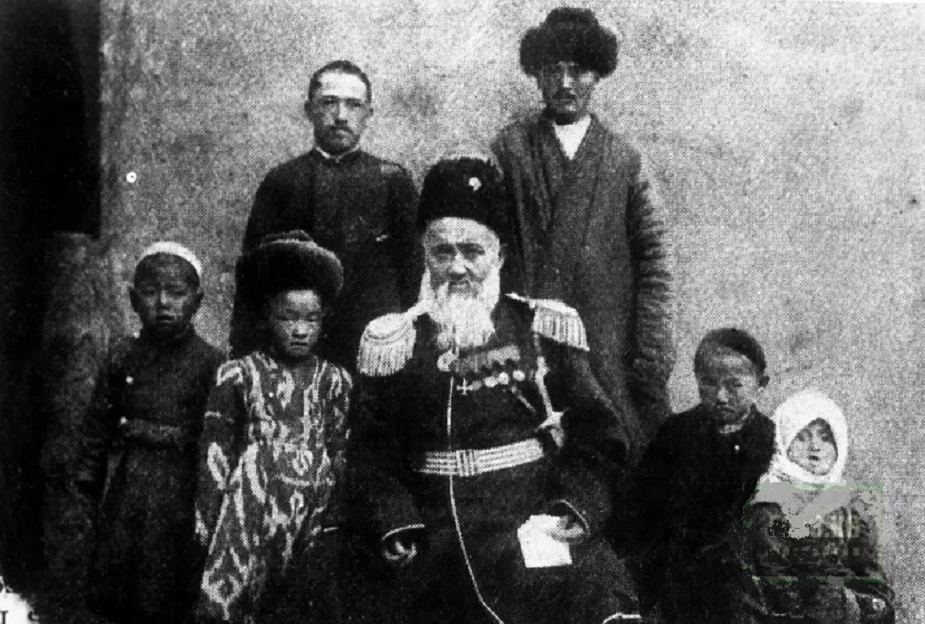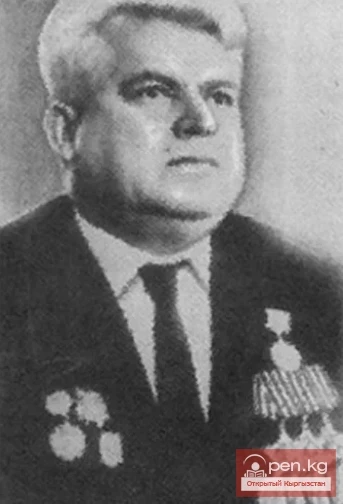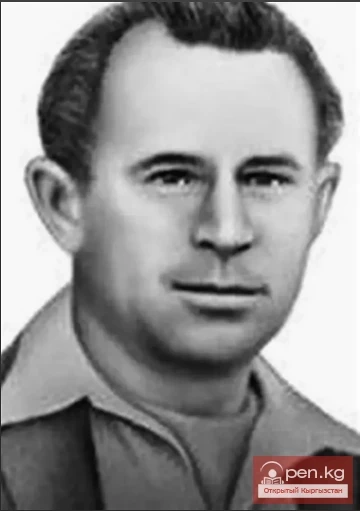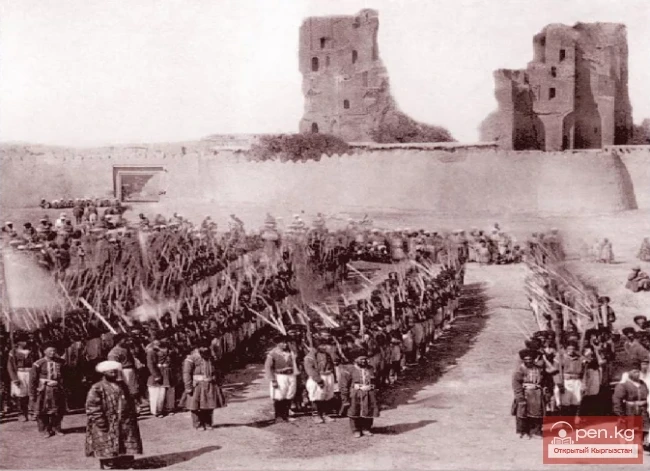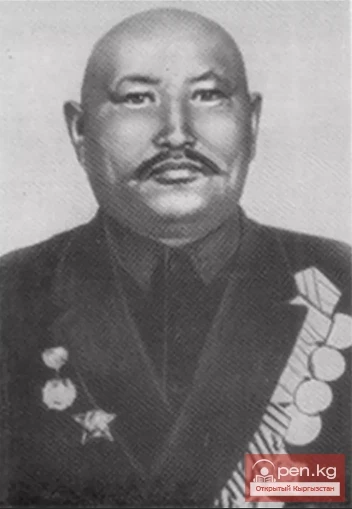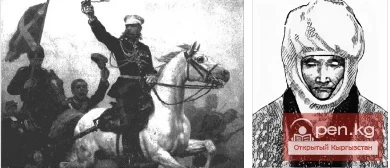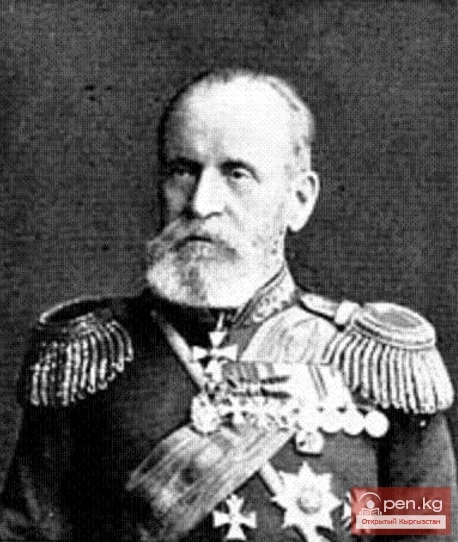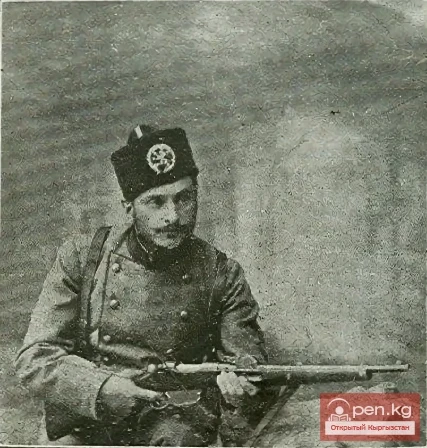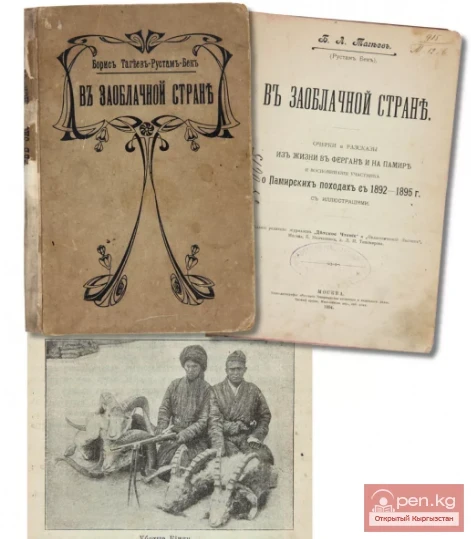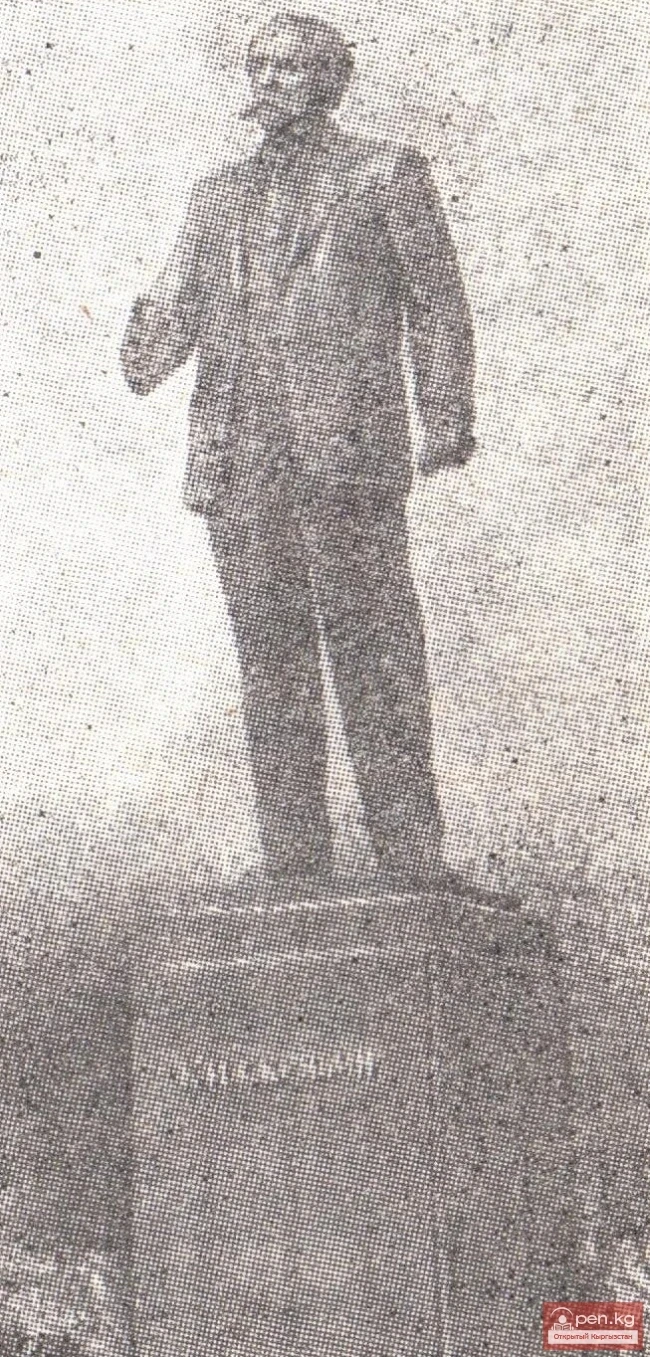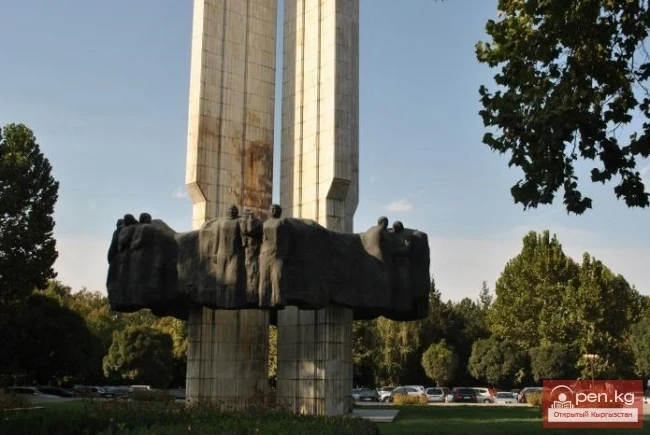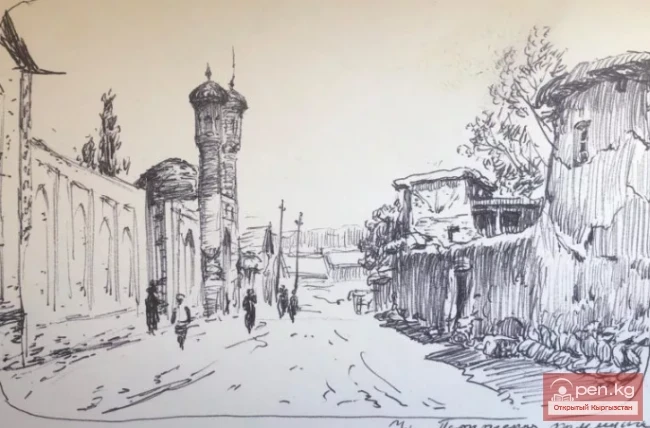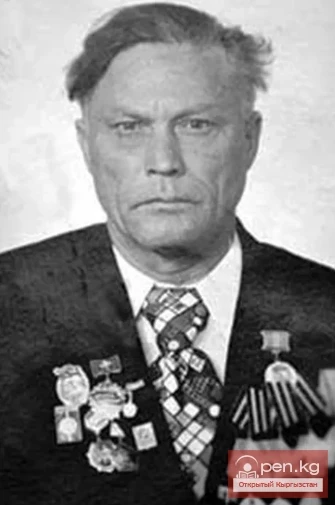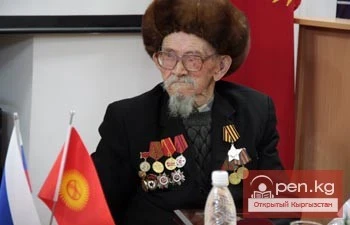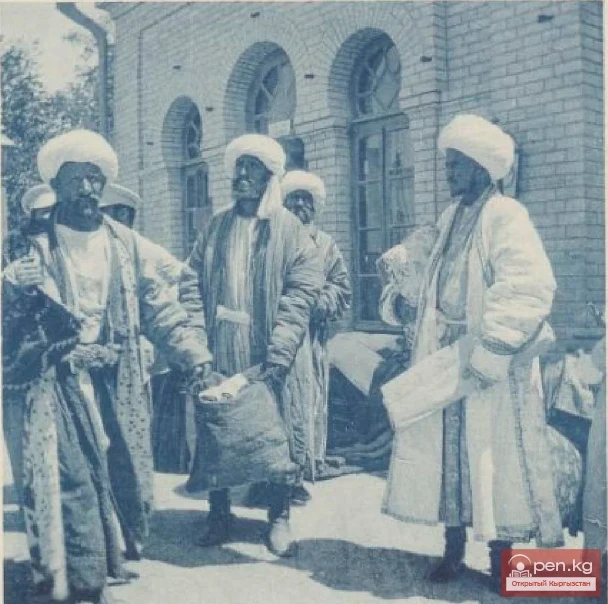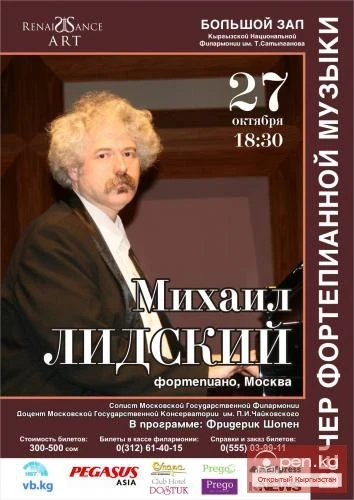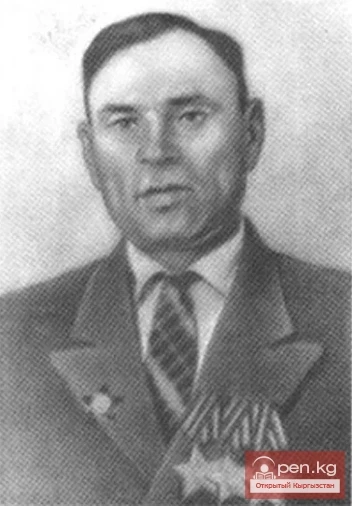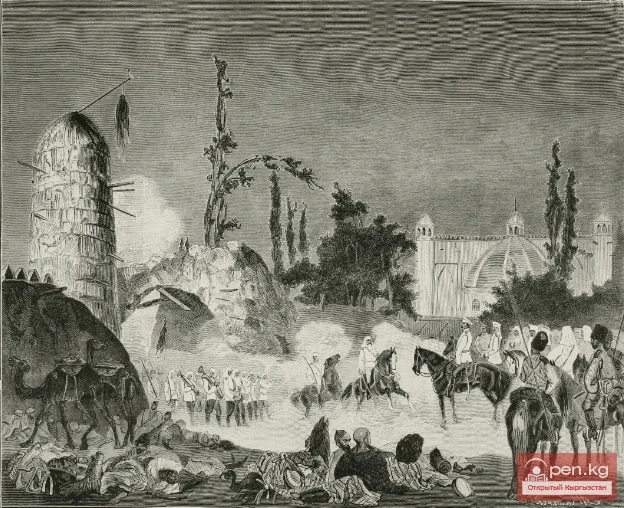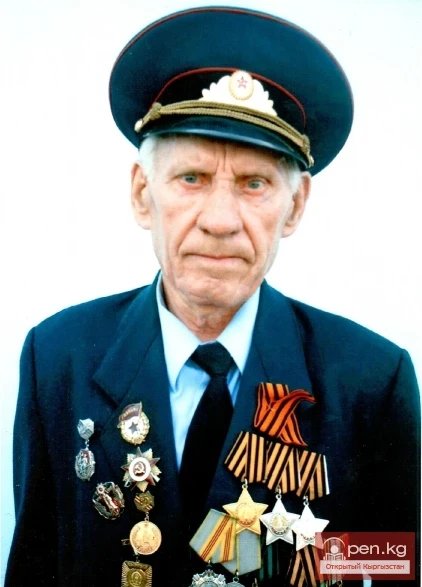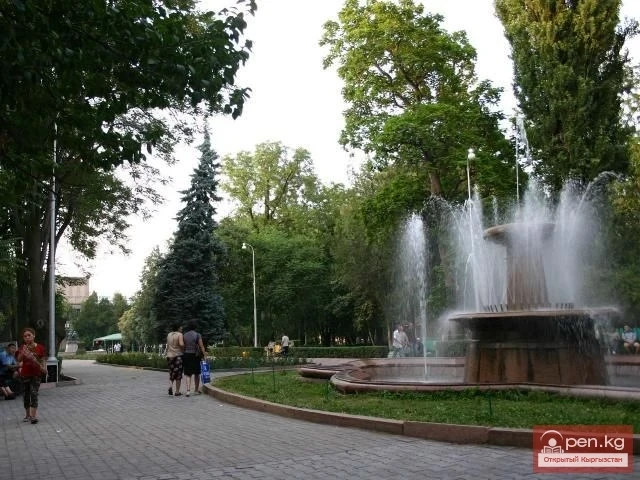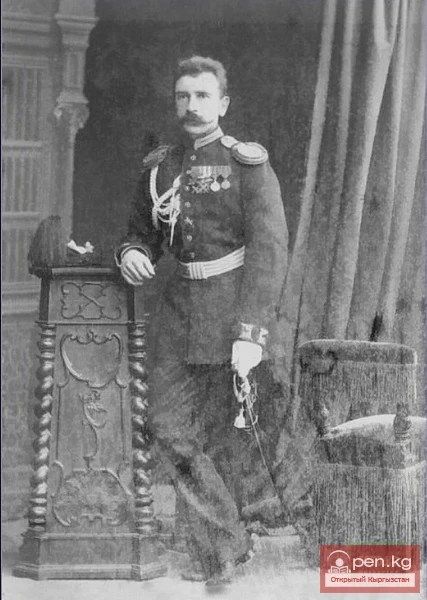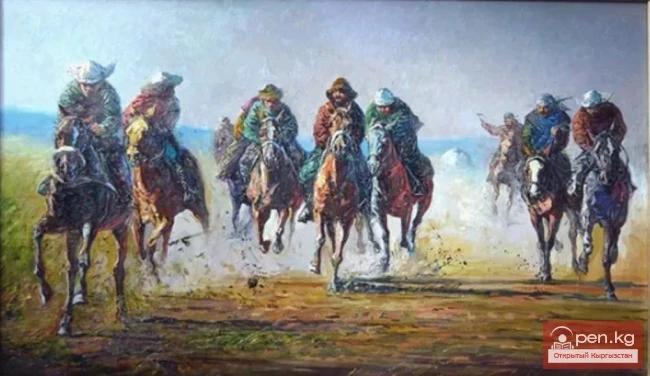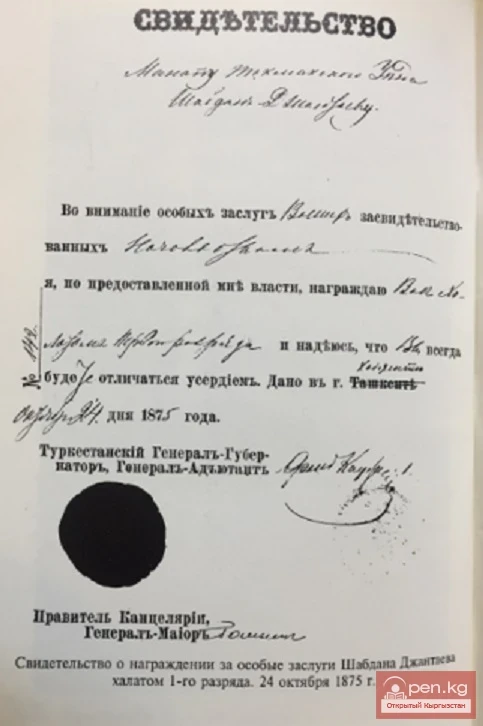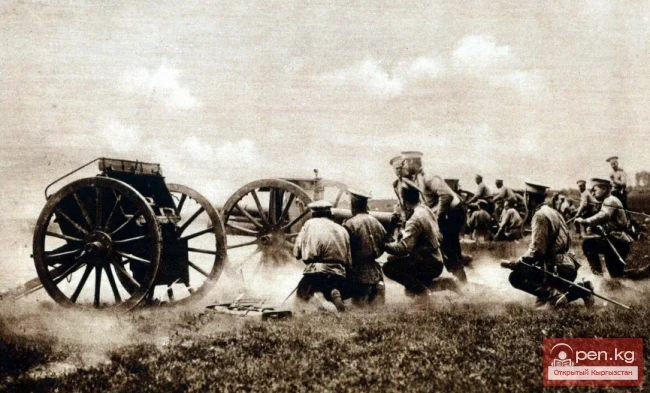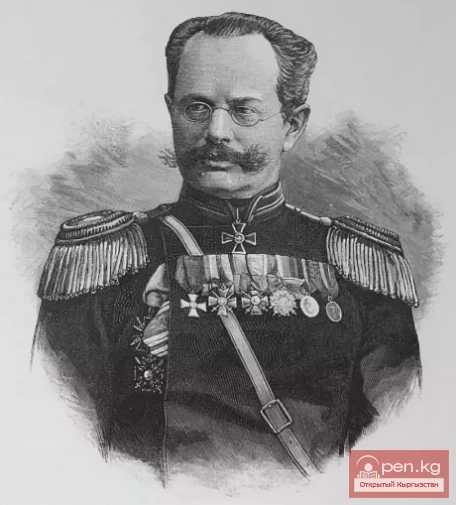
Ataman of the Semirechye Cossack Army Mikhail Efremovich Ionov
When discussing the scientific trophies of the Russian army, it is worth mentioning the name of another outstanding conqueror of Central Asia, General of the Infantry, Acting Ataman of the Semirechye Cossack Army Mikhail Efremovich Ionov. This ambitious Russian officer and researcher of Turkestan was born in 1846 into a noble family in the Oryol province. As a student of the Oryol Bakhin Cadet Corps and the 2nd Military Konstantinov School, he was promoted to ensign in 1866 in the Orenburg (later 1st Turkestan) Rifle Battalion. In 1867-1868, he participated in the conquest of Bukhara, awarded the rank of lieutenant and the Orders of St. Stanislaus 3rd class with swords and bow, St. Anna 3rd class with swords and bow, and St. Stanislaus 2nd class with swords. As part of the Jizzakh Column of the Turkestan Detachment in 1873, he undertook a campaign to Khiva, distinguished himself at the Sheikh-Aryk crossing, was promoted to captain, and awarded the Order of St. Vladimir 4th class with swords and bow. When a rebellion broke out in Kokand in 1875, Ionov's rifle company became part of the main forces of General Kaufman. For the Battle of Makhram, Ionov received the rank of major and the Order of St. Anna 2nd class with swords; for the battle at the Balikchyn Heights, he was awarded a gold weapon inscribed "For Bravery," and finally, for the first assault on Andijan (October 1, 1875), Ionov was awarded the Order of St. George 4th class on December 29, 1876.
In recognition of his distinction against the Kokand forces during the assault on the city of Andijan on October 1, 1875, where, commanding the storming column, he captured four barricades in battle and occupied an important position in the enemy's defenses on the height of Gul-Tyube, which turned the battle decisively in favor of the Russian army, Ionov was promoted to lieutenant colonel in 1881 and in 1883 was appointed commander of the 2nd Turkestan Line Battalion. In 1886, he was promoted to colonel.
Five years earlier, Ionov was assigned with hunting teams from the Turkestan line battalions and Cossacks to the Alai and Pamir regions to clear the territory of the former Kokand Khanate from Afghan and Chinese posts. The expedition included Lieutenant Colonel Grombchevsky and topographer Bendersky, who were engaged in scientific research and mapping. Ionov's decisive actions in the Pamir caused a significant international resonance: British agents Davison and Younghusband were arrested, and the Chinese border official Chan was expelled beyond the Sarykol Ridge into Kashgar.
In the summer of the following year, work on mapping the Pamir and strengthening Russian presence continued. On July 12, Ionov's detachment discovered an Afghan military post on the Alichur River. The post commander, Captain Gulyam-Khaider-Khan, was asked to leave Russian territory; however, he claimed that this territory belonged to Afghanistan and demanded that the Russians leave it. After several hours of negotiations, no agreement was reached, and Ionov ordered his soldiers to disarm the Afghans, leading to a hand-to-hand combat in which Captain Gulyam-Khaider-Khan and seven Afghan soldiers were killed, while the others fled. Three Cossacks were wounded on the Russian side.
In 1893, Ionov was appointed commander of the Alai Reserve and troops stationed beyond Alai and in the Pamir; in 1894, he was promoted to major general and appointed commander of the 4th Turkestan Line Brigade; in 1898, he was dispatched to the Fergana region to command the troops gathered there due to the Andijan unrest; in 1900, he served as commander of the Jarkent detachment formed in anticipation of potential military actions in Kulja due to the Boxer Rebellion in China; from 1899 until his retirement in 1907, he served as governor of the Semirechye region, commanding the troops there and acting as the ataman of the Semirechye Cossack Army. His sons - Alexander Mikhailovich (a prominent figure in the White movement and ROVS) and Vladimir Mikhailovich (an artillery officer, participant in World War I and the Civil War, served in the Red Army, died in 1946).
It is also worth adding that Mikhail Efremovich outlived the country he served faithfully. According to some biographical sources, the last reliable mention of M.E. Ionov dates back to 1919 (he wrote an appeal to Kolchak's troops); according to unverified data, in the early 1920s, he was killed near Kulja in a battle with Red Army units pursuing the remnants of the defeated White Guards under Annenkov near Jarkent.
According to other sources, he accepted the revolution and died in 1923. In his last years, he taught at one of the infantry schools of the Red Army.
Importantly, M.E. Ionov's expeditions secured for Russia a large part of the Pamir, as well as the Pamir territories - Roshtkala, Darvaz, Badakhshan, and Karategin. Mikhail Efremovich is also known as a talented organizer of research work. Under Ionov's leadership, notable Eastern researchers such as A.G. Serebrennikov, B.L. Tagiyev, S.P. Vannovsky, L.G. Skersky, and others began their military Oriental studies activities in the Pamir. He is credited with creating a network of Russian military roads, posts, and fortifications - Pamir, Rankul, and others, which played an important role as support bases for organizing geographical research in Central Asia.
In summarizing our brief account of the work of military Orientalists in Russia in the 19th century, it is important to note that during military expeditions, the arsenal of Russian science was significantly replenished thanks to the presence of qualified Orientalists among the army's command staff. To remain silent about the life and work of this group of outstanding scholars would mean to forget a very significant page not only in the historiography of Russian science but also in the history of Kyrgyzstan.
Commander of the Troops of the Turkestan Military District
